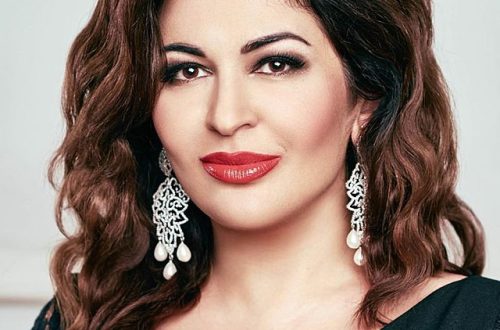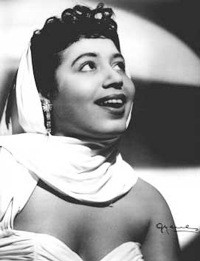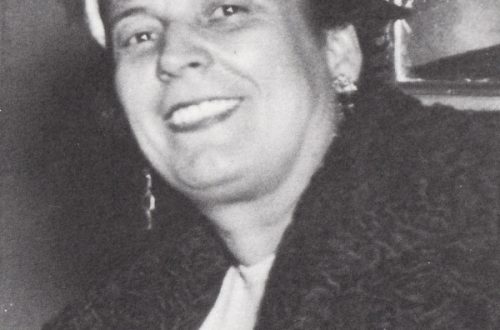
Donat Antonovich Donatov |
Donat Donatov
Is it conceivable that, for example, in the history of painting, music or literature, some talented artists, undeservedly forgotten, remain? If this happens, then it is rather an exception, possible, mainly in relation to the masters of the old eras, whose heritage for some reason has been completely or partially lost. Basically, history puts everyone and everything in its place – glory “overtakes” those unrecognized during life after death!
In the performing arts, this happens all the time, and even more so in vocals – this is too subtle and subjective “matter”. In addition, performing arts is ephemeral in terms of “thingness”, it exists only here and now. It also depends on many attendant circumstances. In which theaters or concert halls did the artist perform, who patronized him and how he was “promoted”, did any recordings remain after him? And, of course, the taste of the “leaders” from art – the performer was entirely dependent on it.
Now I would like to ask: how many people know the wonderful tenor Donat Donatov, except, of course, narrow specialists in the history of vocals and passionate music lovers-philophonists? If the name of Ivan Zhadan, for example (we have already written about him), was artificially hushed up for political reasons, then what happened to Donatov, why is his name unknown to a wide range of opera lovers? But nothing special. He just did not sing at the Bolshoi or Kirov theaters. And is that already enough? But here’s another amazing fact. Recently, a chicly designed two-volume book about MALEGOTH was released, in which Donatov spent several seasons in the early 50s, causing delight of the public. However, the authors of the book did not find a single (?) word for this artist, while M. Dovenman was found for his stage rival.
Donat Antonovich Lukshtoraub, who performed under the pseudonym Donatov, was born in St. Petersburg in 1914. After the revolution, his family, fleeing the Bolshevik regime, emigrated to Riga. His vocal teacher was Vladimir Shetokhin-Alvarets, a student of Lamperti. Here in Riga, Donatov made his debut at the Riga Private Traveling Opera as Herman.
A new page in his life is Italy, where Donatov goes in 1937. Here he auditioned with Gigli, studied with Pertile. On March 7, 1939, the singer made his debut on the stage of the Venetian theater La Fenice in Il trovatore. Together with him in this performance, Maria Canilla and Carlo Tagliabue sang. Donatov’s other roles on this stage include Alfred in La Traviata, in which Toti dal Monte was his partner.
The outbreak of war prevented the further Italian career of the singer. He was going back to Italy, but was forced to stay in Riga. After the occupation of Latvia by German troops, all its inhabitants were declared subjects of the Third Reich. Donatov is sent to work in Germany. Here he sang in the theaters of Dresden, Königsberg. On the eve of the liberation of Latvia, the singer returned to his homeland, where he participated in the partisan movement.
After the restoration of peaceful life, Donatov’s career resumed already in the Soviet Union. In 1949-51. he performed in Odessa for two seasons. The memoirs of contemporaries have been preserved about this period of his career. The Odessa opera public, accustomed to excellent Italian traditions since pre-revolutionary times, greeted the artist with delight. The news of the brilliant tenor spread throughout the city instantly, and the theater began to fill to capacity at his performances. Surprisingly, in those years of the struggle against “rootless cosmopolitanism” Donatov was, in fact, the only singer who was allowed to sing in Italian. Among his crown roles are Jose, Canio, Turiddu, Othello, Radames, Duke.
Here are fragments of the memoirs of one of the admirers of Donatov’s talent during the years of his Odessa triumphs, published recently in the Odessa magazine:
“… all Donatov’s performances were staged in a crowded hall with the obligatory encore of crown arias, with countless flowers, a storm of applause that lasted so long that sometimes the stage workers, tired of waiting, began to lower the reinforced concrete curtain (the curtain that has been dismantled today due to its impressive weight, which led to the beginning of the destruction of the building). And when 2-3 meters remained between the head and the curtain, the artist left the stage, and the audience left the auditorium.
“Thanks to Donatov, an underground business arose in the Odessa Opera: theater photographers vied with each other to photograph the singer in roles and life, and these photographs from under the floor (!) were sold by ushers. And now many old Odessans keep these photographs.”
Yerevan, Baku, Tbilisi, Saratov, Novosibirsk – such is the geography of Donatov’s tours. The famous baritone Batu Kraveishvili, in his memoirs Unforgettable, claims that during performances with Donatov’s participation, transport stopped on the central streets of Tbilisi near the Shota Rustaveli Theater – hundreds of people listened to the singer.
In the 50s, Donatov returned to the city of his childhood. He performed for several seasons at the Leningrad Maly Opera and Ballet Theatre. His dramatic tenor of noble baritone coloring continued (unfortunately not for long) to conquer opera lovers. In the city on the Neva, he ended his life on April 27, 1995.
One of my acquaintances, a philophonist, knew Donatov well and told me about him. He was surprised how selflessly the singer loved … not his own voice, but the voices of other singers, collected records with rare recordings.
When preparing a biographical note about Donatov, M. Malkov’s materials were used.
E. Tsodokov





